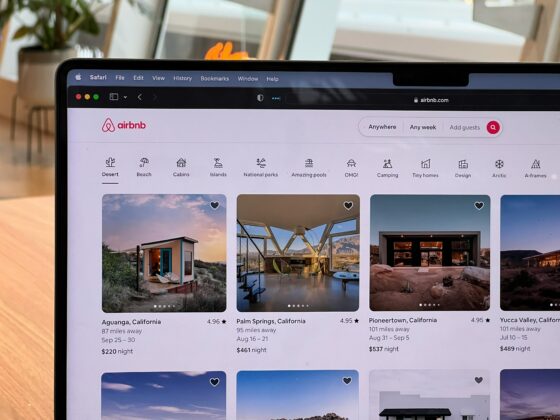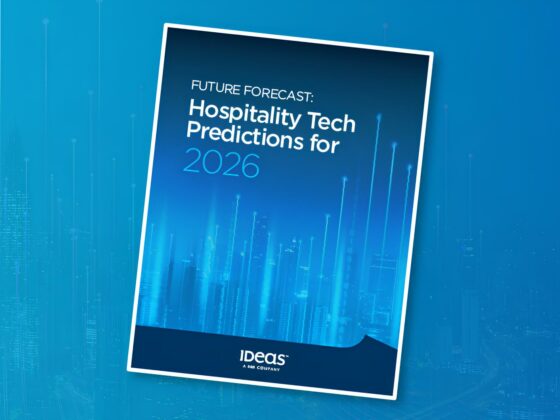
Around the globe, major events such as concerts, festivals, sporting tournaments, and international conferences continue to shape travel. These occasions bring large volumes of travelers, often from considerable distances, seeking accommodation.
For hoteliers, such events represent a valuable opportunity to boost occupancy, increase revenue, and attract new guests. However, capitalizing on this potential requires more than proximity to a venue—it demands knowledge of who is traveling (and when), investment in the right marketing campaign and adequate staffing for peak periods.
The key to all of these things is data. Intelligent use of it can enable any hotelier to get clarity and drive profitable demand. Beyond informing revenue strategy, data provides critical guidance across sales, marketing, and operations. When used effectively, it can empower teams, optimize performance, and ensure that a hotel stands out from the crowd.
Building a Data-Informed Revenue Strategy
One of the primary applications of data for hoteliers is revenue management. With the ability to analyze both historical and forward-looking trend data, hoteliers can respond swiftly and confidently to market shifts. Factors such as booking windows, event-driven demand, and time of year can all be incorporated into flexible strategies that maximize profitability.
For example, by reviewing occupancy trends during a recurring annual conference, a hotel can forecast demand well in advance to determine staffing, pricing and promotional strategies. This forward-thinking approach ensures that rooms are marketed attractively to key customer segments. Importantly, data enables revenue strategy decisions that are not based on assumptions but supported by actionable intelligence.
Enhancing Sales Performance Through Insight
Sales teams also benefit significantly from robust data. Travel demand is rarely static—it fluctuates due to seasonal trends, regional events, and broader economic factors. For example, cities such as Cincinnati may experience significant spikes in demand during events like the FIFA Club World Cup or the summer tourism season, followed by quieter periods during the colder months.
During lower-demand periods, different sales and promotional strategies can be activated accordingly to get more heads in beds. This includes group business – leisure and corporate, which presents a dependable and strategic avenue for revenue generation. With bookings often made months in advance and less prone to cancellation, group business provides stability and predictability. Collaborating with sales teams to automate responses to group requests for proposals (RFPs), and exposing meeting space directly online for instant booking by meeting planners are two effective ways to capture business.
Additionally, hotels that leverage market insights to monitor booking patterns across channels, including GDS, OTAs, and direct bookings, can uncover growth opportunities and highlight channels that need attention. By understanding guest needs and preferences, hotels can strategically offer upsell and cross-sell opportunities, increasing revenue per guest and lowering the cost of acquisition.
Optimizing Marketing Campaigns with Precision
Marketing efforts are most successful when they are timely, relevant, and informed by accurate forecasting. Data plays a vital role in helping marketers identify peak and off-peak periods based on past performance and upcoming external factors, such as local events or seasonal trends.
We recently surveyed 6,000 travelers around the globe as part of our Travel Dreams research and found that there has been a sharp increase in the number of travelers citing ‘social media adverts and posts’ as a source of inspiration (up from 23% to 33% over the past five years). Understanding changes in behavior such as this is key to enhancing campaign targeting and effectiveness.
Using these insights, hoteliers can develop well-timed campaigns and offers that inspire prospective guests. For instance, a coastal resort might launch an exclusive winter promotion on Facebook to maintain momentum during quieter months, while an urban hotel might partner with a local event organizer to create themed packages to share with their e-newsletter subscribers.
Equally important is post-campaign analysis. Tracking guest response and channel performance enables marketing teams to refine their strategies, ensuring resources are directed toward channels with the highest return on investment (ROI).
Streamlining Operations with Forecasting and Foresight
Staffing remains a constant challenge for hoteliers looking to strike a balance between delivering excellent customer service from a limited pool of people and keeping costs under control. Data enables hoteliers to anticipate fluctuations in demand and align resources accordingly. Whether it is adjusting staffing levels, managing inventory, or preparing amenities, the ability to plan ahead contributes to guest experience, achieving operational efficiency and profitability.
For instance, a hotel expecting a surge in check-ins due to an event can ensure that front-desk operations are adequately staffed, rooms are prepared in advance, and guest services are equipped to manage the increased foot traffic. Simple, well-executed touches – such as a seamless check-in experience or prompt housekeeping – can significantly enhance a guest’s perception of your property.
According to our Travel Dreams research, 52% of guests highlight ‘good service’ as a key factor impacting their decision to return to a hotel, further underscoring the importance of smooth operational experiences. Ensuring that service delivery aligns with guest expectations is not only a marker of quality but also a competitive differentiator.
Data as a strategic asset
In an industry rich with lodging options and heightened guest expectations, success hinges on making smarter, faster, and well-informed decisions. Data empowers hoteliers to do exactly that.
By integrating data-driven strategies across revenue, sales, marketing, and operations, hoteliers position themselves to outperform and deliver exceptional guest experiences. This approach fosters agility, drives profitability, and builds stronger relationships with guests.
Ultimately, data is more than a resource, it’s a strategic asset. When harnessed effectively, it enables hoteliers not just to react to key events in the calendar but to anticipate their impact, transforming critical decision-making and ensuring that they stay top of mind for today’s travelers.









